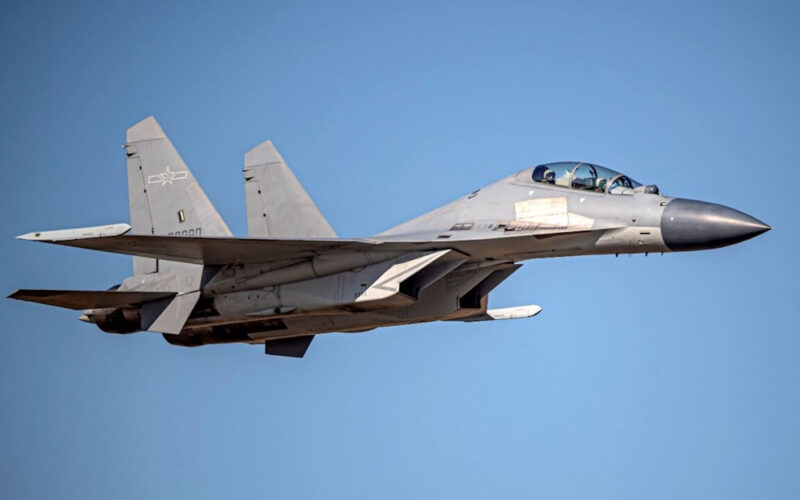China has sent military aircraft into Taiwan’s air defense identification zone (ADIZ) for the third time during January 2022.
According to Taiwan’s Ministry of National Defense (MND), the following Chinese military aircraft flew into the southwest corner of Taiwan’s ADIZ on January 4, 2022:
-
Five People’s Liberation Army Air Force (PLAAF) Shenyang J-16 fighter jets
-
One Shaanxi Y-8 electronic warfare plane; and
-
One Y-8 anti-submarine warfare
In response, Taiwan sent aircraft, broadcast radio warnings, and deployed air defense missile systems to track the Chinese planes.
During the month of January 2022 alone, nine Chinese aircraft (five fighter jets and four spotter planes) have already been spotted in Taiwan’s ADIZ. In December 2021, a total of 86 PLAAF aircraft were spotted in the ADIZ, including 48 fighters, two bombers, and 36 turboprops.
Since September 2021, China has increased its use of gray zone tactics by routinely sending aircraft into Taiwan’s ADIZ. Gray zone tactics have been defined as “an effort or series of efforts beyond steady-state deterrence and assurance that attempts to achieve one’s security objectives without resort to direct and sizable use of force”.
In a New Years’ speech delivered on January 1, 2022, Taiwan president Tsai Ing-Wen warned China against its practice of ‘military adventurism’.
“We must remind the Beijing authorities to not misjudge the situation and to prevent the internal expansion of ‘military adventurism’,” Tsai said in the speech, which was broadcasted live on Facebook.
“The use of military means is absolutely not an option for resolving the differences between our two sides.”
She said that to ease tension in the region, both Taipei and Beijing must “work hard to take care of people’s livelihoods and calm the hearts of the people” in order to find peaceful solutions to problems together.
In his New Years’ speech, Chinese president Xi Jinping said that the complete unification of “the motherland” was an aspiration shared by people on both sides of the Taiwan Strait, referring to Taiwan, which it considers “sacred” territory.

